Colourful motives of Gaziantep meet with the minimalist design of Iceland
Date:
It is early morning but there is already a rush-hour-like buzz at the Sada Women’s Cooperative in Gaziantep, southern Türkiye, near the Syrian border. A dozen or so women are busily preparing their spools for special guests coming from far away.
“We are proud of what we have done here. Our success has reached all the way to Iceland! They are coming here to Gaziantep solely to collaborate with us. We are grateful and happy,” says Khtem Kujjeh, who is originally from Syria and has been a member of the cooperative since 2021.
Besides its population of 2 million, Gaziantep hosts some 470,000 Syrian refugees who fled the war in Syria.
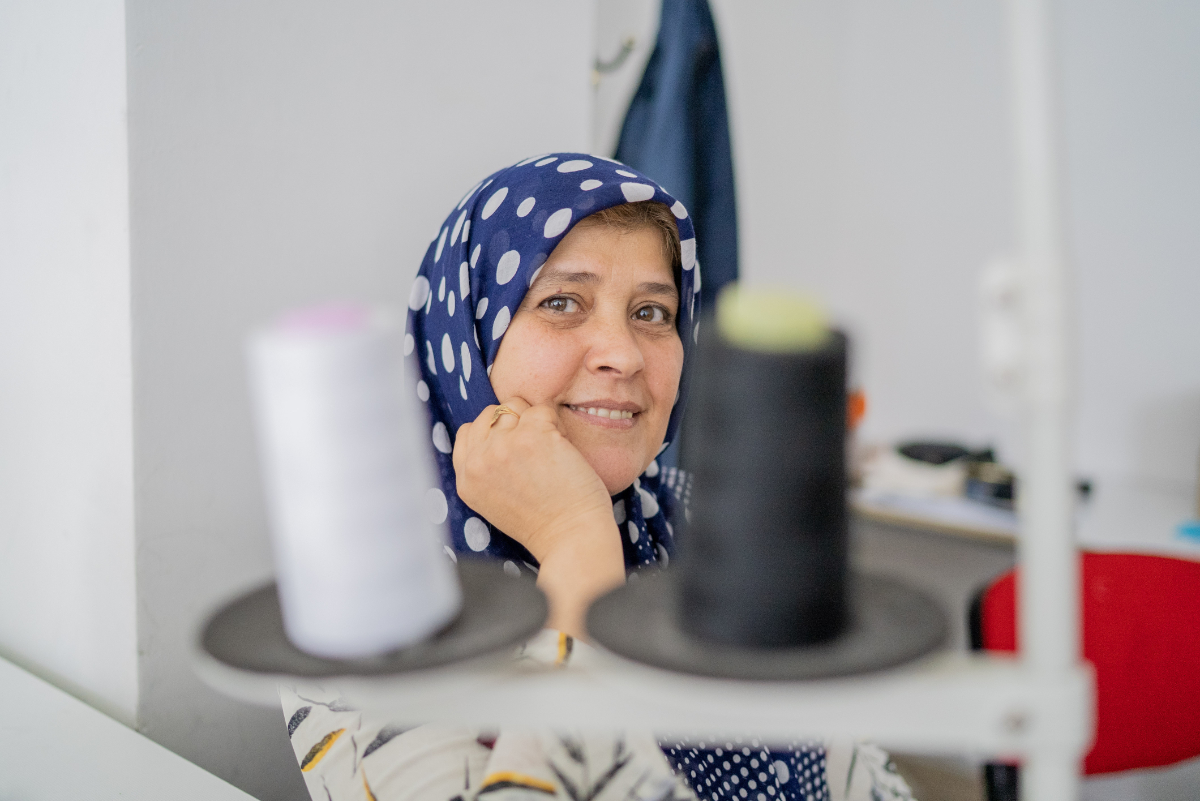
Nazire Öztürk is in the sewing room with other women who are all practising cross-stitching 66°North patterns on textiles.
“Yesterday we went to see the textiles together with Sæunn and Happa from the 66°North team. We want the products to represent the spirit of our collaboration. So, we chose some traditional textile fabrics,” says Öztürk, a Turkish member of the Sada Women’s Cooperative since it was established in 2019.
The cooperative recently started a collaboration with the Icelandic outdoor clothing brand 66°North, which aims to support the economic empowerment of Turkish and Syrian women by increasing their global market outreach and supporting vocational skills development.
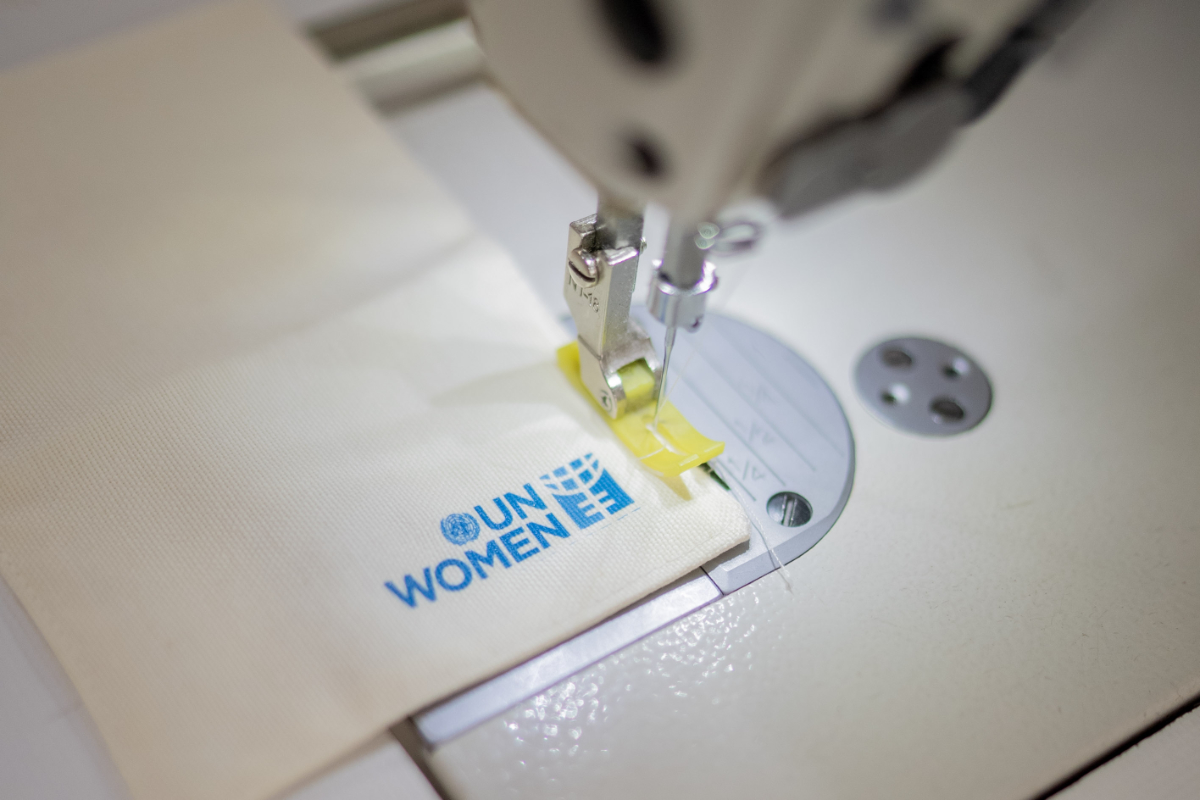
This is not the cooperative’s first international collaboration, as it previously joined the Paris Peace Forum as one of 10 scale-up projects in 2019. With its exemplary practices on collective production, inclusive governance and peaceful co-existence, the Sada Women’s Cooperative has emerged as a safe production and sustainable income hub for Turkish and Syrian women alike. The Collaboration with 66°North comes as a result of the recognition gained at the Paris Peace Forum which helped the cooperative reach new markets.
The cooperative originated from the Sada Women’s Empowerment and Solidarity Centre. Financed by the European Union, the Government of Japan and the Government of Norway, and coupled with UN Women’s gender-responsive approach, the Sada Centre has been providing protection and livelihood support and fostering social cohesion among local communities. UN Women’s partners Gaziantep Metropolitan Municipality, International Labour Organization, and Association for Solidarity with Asylum-Seekers and Migrants have played a key role in turning Sada into a unique women’s empowerment hub.
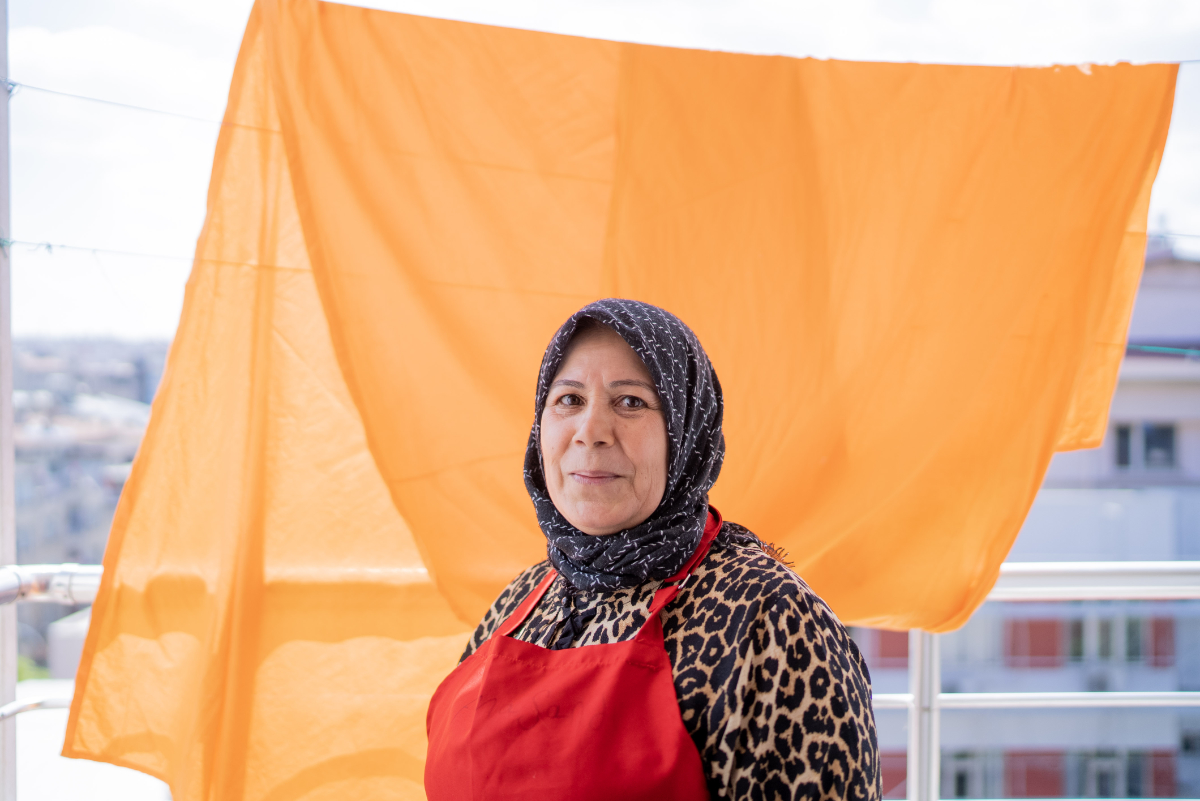
“When I first came to the Sada Centre, I was hopeless. The war made me feel that life had already ended for me,” one of the cooperative members from Syria. “At the centre, I received psychosocial support and slowly joined vocational trainings on textile-making. Together with Syrian and Turkish friends, we joined forces.”
She continues, “Sada, or Seda, means ‘the voice’ in Arabic and Turkish. As one of my friends from the cooperative once said, ‘Sada gave us wings and the cooperative made us fly’. Despite the devastating impact of the COVID-19 pandemic on our lives, we learned how to overcome crises and bounce back through the power of solidarity.”
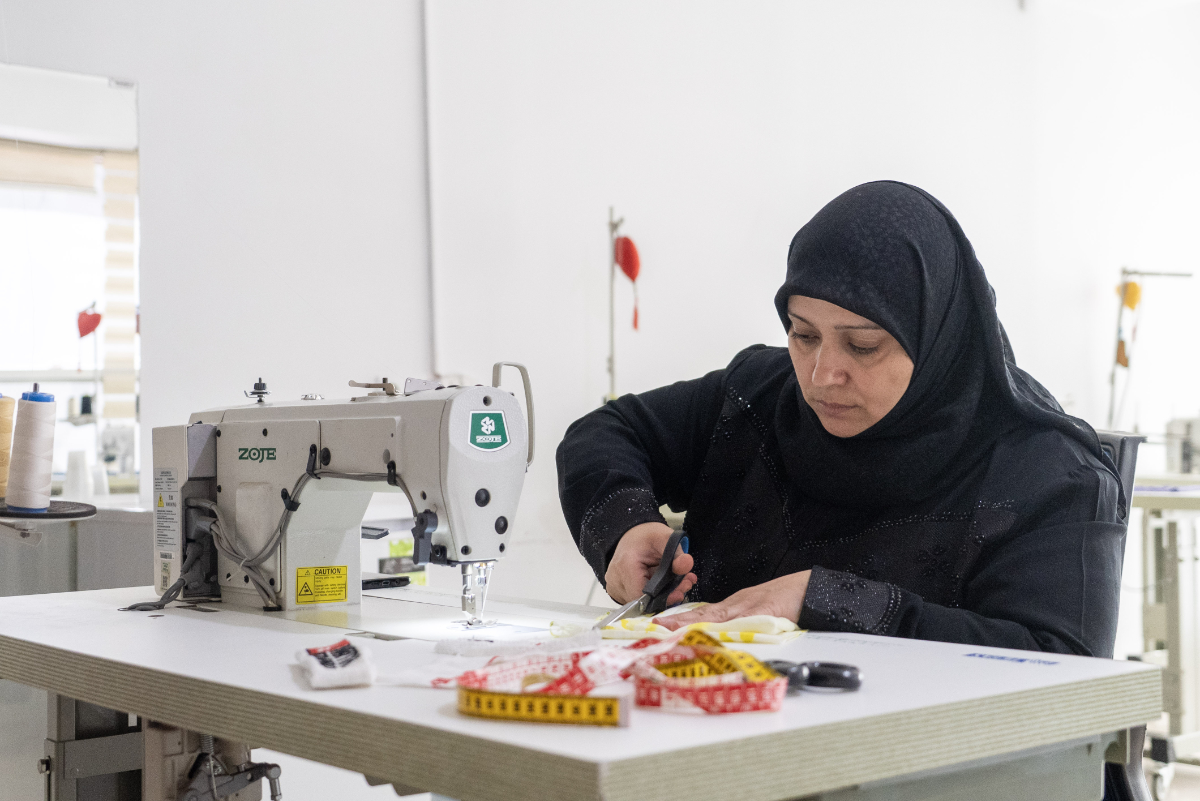
Sæunn Thordardottir , a designer at 66°North, is developing the products together with the women of Sada.
“I am extremely proud and excited about this project we are working on with UN Women Iceland and Sada Cooperative. The women participating in this project are wonderful to work with and are doing amazing things. We look forward taking this project to another level together. The fabrics that Gaziantep offers are beautiful, I see so many opportunities with all the fabrics, textures and colours.“
Originally called “kutnu”, Kutnia is a traditional fabric which is produced only in Gaziantep. The fabric often has colourful motifs reflecting the culture and heritage of the city. Sada and 66°North aim to combine Kutnia with the minimalist look of 66°North.
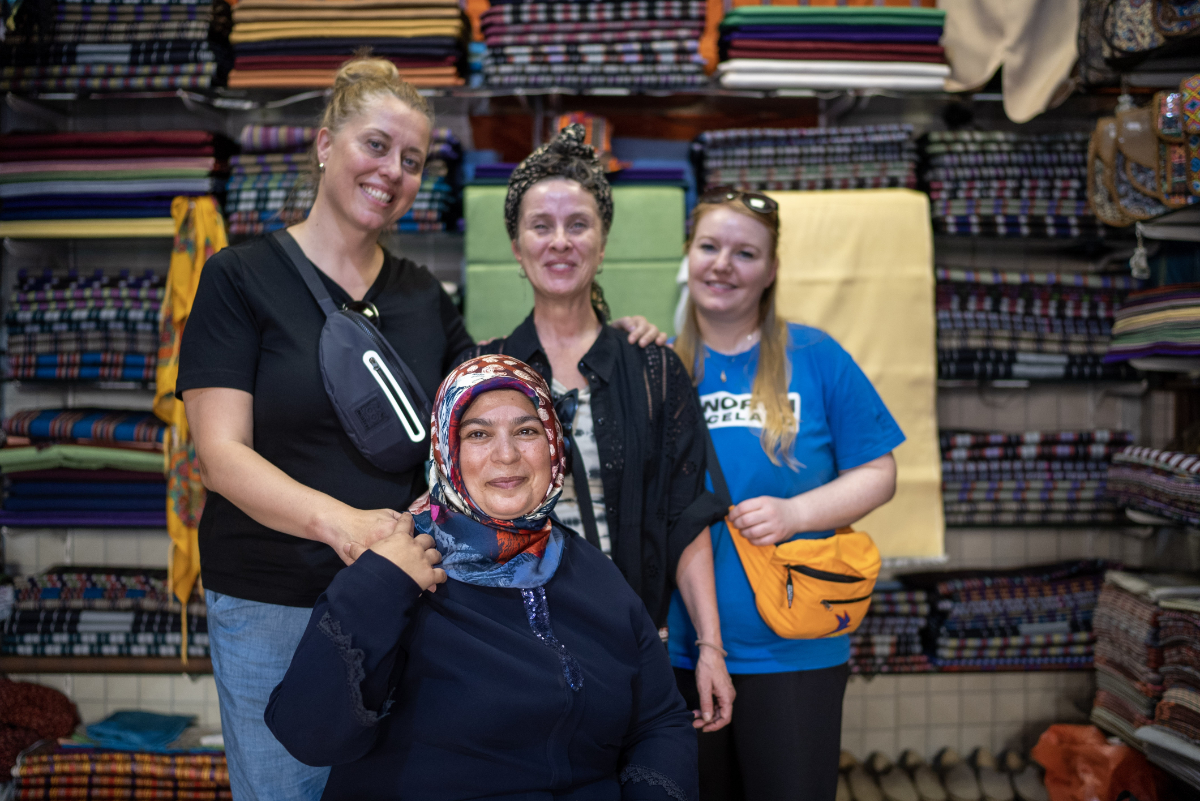
UN Women Iceland and UN Women Türkiye colleagues are also visiting, given their role in cementing the collaboration between the cooperative and 66°North. Stella Samuelsdottir, Head of the UN Women Icelandic National Committee, has been following the cooperative’s progress for some time.
“We put our heart, effort and time into this joint work because we truly believe in it. We are now spending time together with the women and we feel the passion they have. This collaboration aims to support the sustainability of Sada Women’s Cooperative. We hope this will be exemplary work to inspire the industry to do more gender-responsive procurement,” she says.
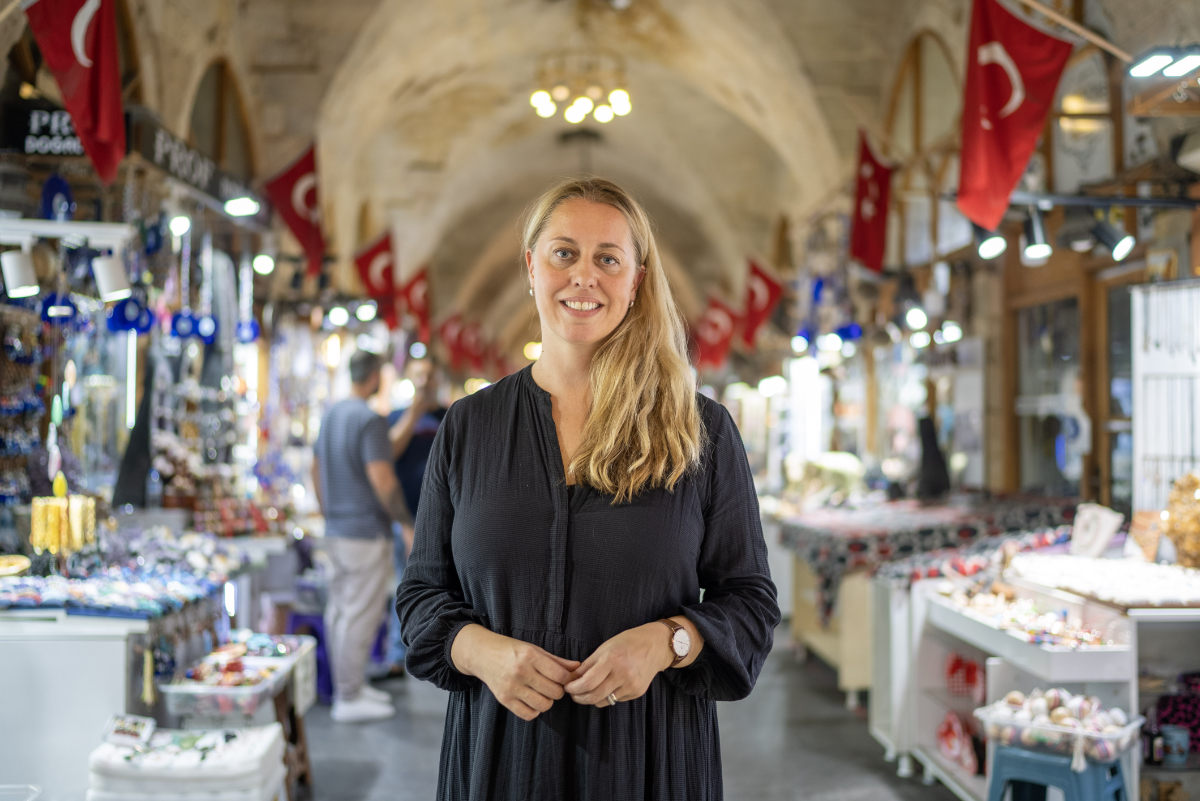
Safa Karataş, UN Women’s Refugee Response Coordinator says the project is a fascinating and a promising example of gender-responsive procurement. “People will be able to see the products in shop windows of London, Copenhagen and even Reykjavik. Products, which were once the end products of a vocational training at the Sada Centre will now become products of the international clothing industry.”
Around 4,200 handmade textile products are expected to be produced through the collaboration, which will run until 2025. The final products will be sold by 66°North and at UN Women Iceland online store.
Watch the video SADAxN66: First connection and beyond to embark on a journey with SADA women and this new exciting project.